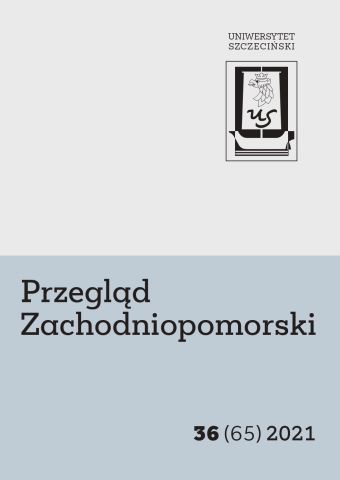W poszukiwaniu dobrego sąsiedztwa. 35 lat koordynowania w IFG i ILiNM inter- i transkulturowych projektów wymiany nad Odrą – szczeciński model germanistyki kulturowego pogranicza
In search of a good neighbourhood during 35 years of managing Intercultural and transcultural exchange projects in IFG and ILiUM: Szczecin model of cultural borderland German studies
Author(s): Katarzyna Joanna KrasońSubject(s): Politics / Political Sciences, Politics, Social Sciences, Media studies, Communication studies, Sociology, International relations/trade
Published by: Wydawnictwo Naukowe Uniwersytetu Szczecińskiego
Keywords: area studies; transcultural German studies; regionalism; cross-border cooperation
Summary/Abstract: This text is the first part of the report on the mandate activities of Dr. Andrzej Talarczyk, the coordinator at the Institute of German Philology at the University of Szczecin in the field of cooperation with academic and non-academic institutions in Germany. It covers the entire period of the existence of this organisational unit, i.e. the years 1985–2019 and the first academic year of the work of the newly established Institute of Literature and New Media. The description of this part concerns the following institutions: (1) German Embassy in Warsaw, (2) University of Rostock, (3) Sankelmark Academy in Oeversee, (4) Christian Albrechts University in Kiel, (5) University of Leipzig, (6) University of Greifswald, (7) Ostsee Academy in Lübeck-Travemünde, (8) European Academy Mecklenburg/ Vorpommern in Waren, (9) Konrad Adenauer Foundation, branch in Rostock, (10) Grips-Theatre in Berlin, (11) Theatre Uckermärkische Bühnen in Schwedt, (12) Ehm Welk and Local History Museum in Angermünde, (13) Uckermärkische Literaturgesellschaft in Angermünde, (14) Academia Baltica in Oeversee, (15) Visitor Service of the German Bundestag in Bonn and Berlin (16), Euroregion in Szczecin. Study trips to northern Germany in the footsteps of German writers are also described. All these activities are presented in a wider context of the Institute’s development which forms a background to these descriptions and analyses. With their systemic nature, they extended the regionalist spectrum of impact not only to the whole Alma Mater Stetinensis, Euroregion Pomerania, but also to the other partners beyond the Oder – from Mecklenburg/Western Pomerania and Schleswig-Holstein. These projects were innovative not only in terms of cross-border contacts, but also in terms of German studies in Poland as a whole.
Journal: Przegląd Zachodniopomorski
- Issue Year: 36/2021
- Issue No: 01
- Page Range: 435-458
- Page Count: 24
- Language: Polish

